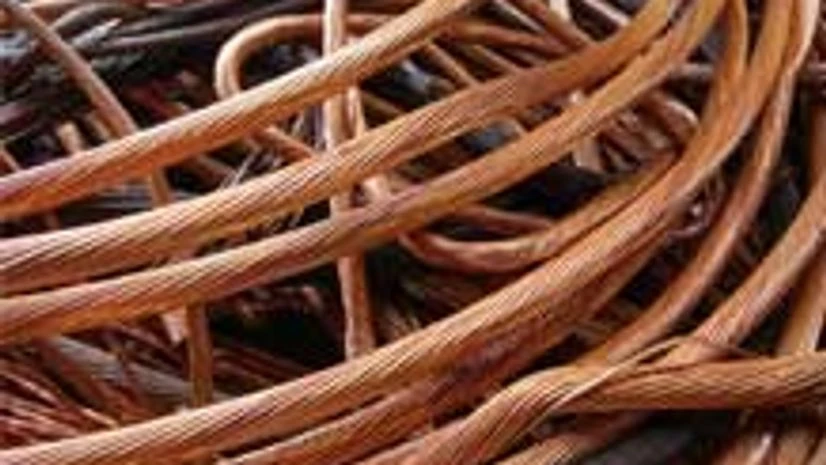Base metals fell sharply, after opening strong, in early London trade, on fears of Greek default impact. While copper settled with a gain, other metals such as nickel fell to six year low.
Metals such as LME zinc, aluminium, lead and tin succumbed to risk-off selling, falling 1 per cent, or more, but LME copper bucked the trend, up 0.5 per cent, as shorts rushed for cover, and supported by fresh stimulus out of China. Benchmark nickel traded on the London Metal Exchange sagged to $11710 a tonne, having cracked support from mid-April, to its weakest since May 2009. LME copper went up marginally to $5,772 a tonne.
Gold was trading marginally higher at $1182 while in Mumbai's spot market gold closed at Rs 26,800 per 10 gram, Rs 100 higher.
With Greece pulling out of the emergency meeting with creditors on Sunday, it would require to pay €1.6 billion to the International Monetary Fund (IMF) on Tuesday, the same day that its current bailout agreement is set to expire. The Greek government has called for a referendum on July 5 over terms and conditions imposed on it.
“The Greek government has announced a referendum among their own people, recommending not accepting conditions laid down by Euro zone creditors. The new government came to the power on conditions that Greeks would not accept creditors’ conditions. If Greeks accept these conditions, they would have to pay taxes and other levies. Independent surveys, however, show that 57 per cent people are in favour of Euro zone creditors’ rules. That’s why base metal got a knee-jerk reaction for closure of banks and draining money out of Greece,” said Gnanasekar Thiagarajan, director, Commtrendz Research.
Meanwhile, copper settled up after China cut rates on Sunday. However, Chinese stocks continued downward journey even after rate cut, which indicated that market is not convinced. Otherwise, the rate cut would have resulted in increasing demand for commodities as usually rate cut stimulates growth. Hence so far both the events that Greece Crisis and China’s rate cut have not enthused commodities.
Nic Brown, head of Research for commodities at London-based Natixis commodities, said, “The Greek situation has clearly deteriorated markedly over the weekend, resulting in euro weakness and falls in equity markets across Europe. A weaker euro implies a stronger dollar, which will help to depress most commodity prices. Gold is a clear exception, given its safe haven status, although this may not be enough to push the dollar price of gold materially higher."
Gold prices have, however, not moved much. Initially on Monday morning when Asian markets open gold was up by $10 but it fell again in the late trades and was trading at $1,179 per ounce.
Mainland Chinese equities, which have dropped by over 20 per cent from their recent high, fell again on Monday, despite interest rate cuts and a reduction in Reserve Ratio Requirements by People’s Bank of China over the weekend. Nic sees this as a negative for commodities. “While the bull market in Chinese equities failed to boost commodity prices, it would be reasonable to think that a sharp fall in Chinese equity valuations may have negative implications for industrial metal and energy prices,” he said.
London nickel slipped to its lowest in six years on Monday, as risk aversion over Greece compounded selling pressure set off by weak stainless steel demand and chart-based sales.
“China’s yet again interest rate cut has also indicated that metal demand from the world’s largest consumer has fallen. Overall trend looks negative for base metals on falling demand from China,” Ajay Kedia, managing director, Kedia Commodity.

)
